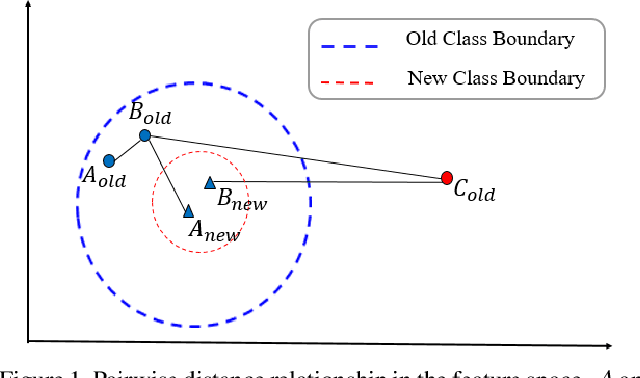Neighborhood Consensus Contrastive Learning for Backward-Compatible Representation
Paper and Code
Sep 09, 2021



In object re-identification (ReID), the development of deep learning techniques often involves model updates and deployment. It is unbearable to re-embedding and re-index with the system suspended when deploying new models. Therefore, backward-compatible representation is proposed to enable "new" features to be compared with "old" features directly, which means that the database is active when there are both "new" and "old" features in it. Thus we can scroll-refresh the database or even do nothing on the database to update. The existing backward-compatible methods either require a strong overlap between old and new training data or simply conduct constraints at the instance level. Thus they are difficult in handling complicated cluster structures and are limited in eliminating the impact of outliers in old embeddings, resulting in a risk of damaging the discriminative capability of new features. In this work, we propose a Neighborhood Consensus Contrastive Learning (NCCL) method. With no assumptions about the new training data, we estimate the sub-cluster structures of old embeddings. A new embedding is constrained with multiple old embeddings in both embedding space and discrimination space at the sub-class level. The effect of outliers diminished, as the multiple samples serve as "mean teachers". Besides, we also propose a scheme to filter the old embeddings with low credibility, further improving the compatibility robustness. Our method ensures backward compatibility without impairing the accuracy of the new model. And it can even improve the new model's accuracy in most scenarios.
 Add to Chrome
Add to Chrome Add to Firefox
Add to Firefox Add to Edge
Add to Edge